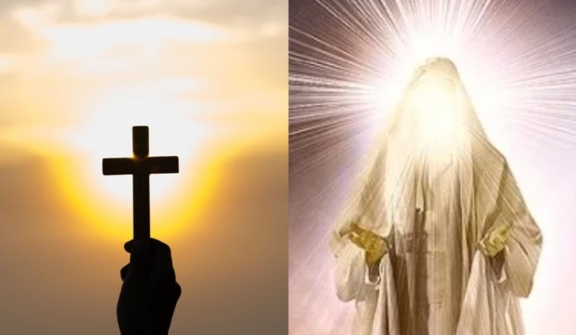
Everybody has a belief. While the West worships God, the East believes in Buddha.
Even though faith is formless, you cannot locate the forms of gods and Buddhas until you cross over to another realm, where perhaps they will be able to identify their appearance.
The most obvious image that comes to mind when you think of God is an ethereal body surrounded by a brilliant white light. But how does research reveal the emotional details of God?
That is the question that psychologists at UNC-Chapel Hill are attempting to answer.
Joshua Conrad Jackson, a cultural psychologist, led the study that found this. The researcher used a novel technique in 2018 to determine which Christian face pair a sample group of 522 people thought most resembled their conception of God.

To reflect the perception of God held by Americans, a team of researchers chose and combined the faces to produce a final image.
You might be surprised to hear that people were more likely to believe that God looked younger and more feminine than how he has usually been portrayed in scripture and on television, based on the faces chosen.
However, the researchers also discovered that people's perceptions of God were influenced by their political beliefs. For example, conservatives perceived God as all-knowing and Caucasian, while liberals perceived God as nurturing and feminine.

The two final images that were produced combine all of the faces that were chosen to have characteristics that are similar to God, while the other image combines the faces that were least similar to God.
They both seem pretty strange, but I guess you can never be too exact when describing the appearance of a deity.
While many Christians adhere to the belief that God created humanity in His image, it's comprehensible that when presented with images of people, individuals might lean towards selecting someone with similar features.
Interestingly, despite perceiving God in a likeness to themselves, irrespective of gender, all participants consistently chose to depict God in a male form.

The authors of the study, which was published in PLOS One, wrote: "Independent ratings suggest that, as predicted, perceptions of God’s face are shaped by egocentrism."
"Older participants saw an older God, more attractive participants saw a more attractive God, and African Americans saw a marginally more African American God."
As the image above illustrates, a white man is once again shown, albeit with a more somber expression on his face and thinning hair, in line with their conception of God.
The senior author of the study, Professor Kurt Gray, explained: "People's tendency to believe in a God that looks like them is consistent with an egocentric bias."
"People often project their beliefs and traits onto others, and our study shows that God's appearance is no different—people believe in a God who not only thinks like them but also looks like them."




